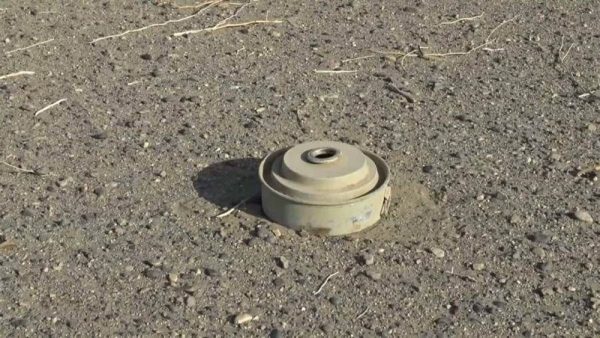In Hodeidah , Three Citizens Killed, Injured In Mine Explosion Remnants Of US-Saudi Aggression
Our correspondent in Al-Hodeidah reported the killed of a citizen and the injury of two others as a result of the explosion from remnant of US-Saudi aggression north of At-Tuhayta district
On Friday, a citizen was killed, as a result of the explosion from remnant of US-Saudi aggression in the village of Masawara, Al-Fardah area, Majzar district, in Marib.
In Al-Jawf, a citizen was killed as a result of the explosion of a mine left over from US-Saudi aggression, east of the province.
Earlier today, two children were injured by the explosion of objects left over from US-Saudi aggression in Hajjah and Hodeidah governorates.
In Sa’adah, a woman was injured by the explosion of a cluster bomb left over from US-Saudi aggression in Ketaf district.
The cluster bombs dropped by the aggression’s aircraft, as well as the mines and munitions left behind by the aggression, are spread in farms, pastures, residential areas and in civilian facilities, causing a high number of casualties.
Saudi Arabia, backed by the United States and regional allies, launched the war on Yemen in March 2015, with the claim of bringing the government of former Yemeni president Abd Rabbuh Mansour Hadi back to power.
The war has left hundreds of thousands of Yemenis dead, and displaced millions more. It has also destroyed Yemen’s infrastructure and spread famine and infectious diseases there.
The victims of cluster bombs have reached more than 25,000 civilians since the beginning of the US-Saudi aggression on Yemen. The Director of the Executive Center for Mine Action, Brigadier General Ali Safra, has pointed out that the support and resources allocated to field clearance do not reach the level of 2% of what is required to be cleaned.
The director of the Executive Center for Mine Action Brigadier Ali Safra stated that Hodeidah, Al-Baidha’a, Marib, Al-Jawf, Nihm and Sa’adah are the most infested areas for mines and bombs, in which the aggression used the most deadly and latest military technology in the country.
He explained that the Center is continuing to work to clear areas contaminated and affected by the bombs and mines of the US-Saudi aggression, pointing out that mines and remnants – especially cluster bombs – have become a national issue and a societal problem that must be disposed.
The Executive Center for Mine Action announced the discovery of 544 mines and cluster bombs left over from the aggression during the first week of January 2022.
The US-Saudi aggression refuses to enter equipment and devices to detect explosives in light of the silence of the United Nations, which bears the greatest responsibility for the continued casualties due to the remnants of the aggression, including mines and cluster bombs.
The Mine Center’s field work is concentrated in dangerous areas and densely populated directorates. However, the UN’s curtailment of its support programs and the coalition’s prevention of the introduction of detectors raises the specter of death that threatens the lives of women and children.

